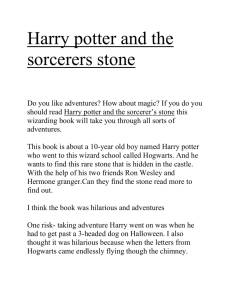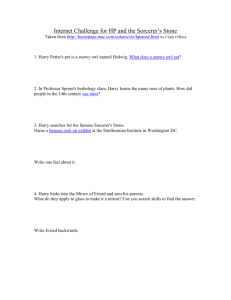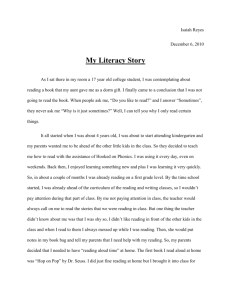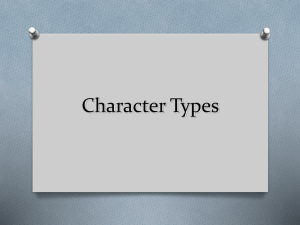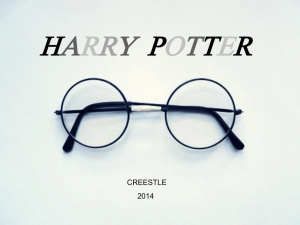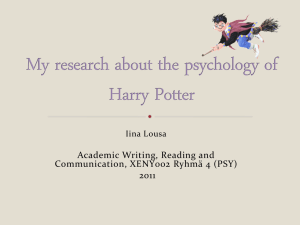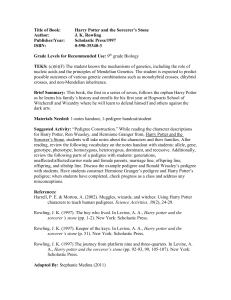Harry Potter and the Sorcerer`s Stone (2001)
advertisement
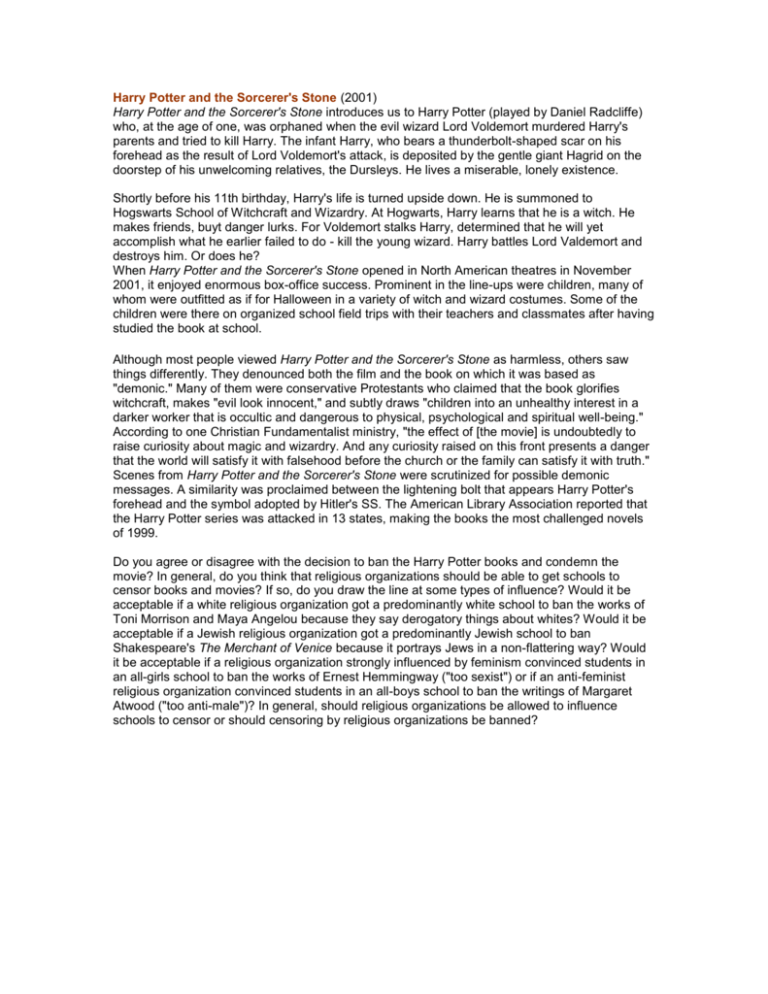
Harry Potter and the Sorcerer's Stone (2001) Harry Potter and the Sorcerer's Stone introduces us to Harry Potter (played by Daniel Radcliffe) who, at the age of one, was orphaned when the evil wizard Lord Voldemort murdered Harry's parents and tried to kill Harry. The infant Harry, who bears a thunderbolt-shaped scar on his forehead as the result of Lord Voldemort's attack, is deposited by the gentle giant Hagrid on the doorstep of his unwelcoming relatives, the Dursleys. He lives a miserable, lonely existence. Shortly before his 11th birthday, Harry's life is turned upside down. He is summoned to Hogswarts School of Witchcraft and Wizardry. At Hogwarts, Harry learns that he is a witch. He makes friends, buyt danger lurks. For Voldemort stalks Harry, determined that he will yet accomplish what he earlier failed to do - kill the young wizard. Harry battles Lord Valdemort and destroys him. Or does he? When Harry Potter and the Sorcerer's Stone opened in North American theatres in November 2001, it enjoyed enormous box-office success. Prominent in the line-ups were children, many of whom were outfitted as if for Halloween in a variety of witch and wizard costumes. Some of the children were there on organized school field trips with their teachers and classmates after having studied the book at school. Although most people viewed Harry Potter and the Sorcerer's Stone as harmless, others saw things differently. They denounced both the film and the book on which it was based as "demonic." Many of them were conservative Protestants who claimed that the book glorifies witchcraft, makes "evil look innocent," and subtly draws "children into an unhealthy interest in a darker worker that is occultic and dangerous to physical, psychological and spiritual well-being." According to one Christian Fundamentalist ministry, "the effect of [the movie] is undoubtedly to raise curiosity about magic and wizardry. And any curiosity raised on this front presents a danger that the world will satisfy it with falsehood before the church or the family can satisfy it with truth." Scenes from Harry Potter and the Sorcerer's Stone were scrutinized for possible demonic messages. A similarity was proclaimed between the lightening bolt that appears Harry Potter's forehead and the symbol adopted by Hitler's SS. The American Library Association reported that the Harry Potter series was attacked in 13 states, making the books the most challenged novels of 1999. Do you agree or disagree with the decision to ban the Harry Potter books and condemn the movie? In general, do you think that religious organizations should be able to get schools to censor books and movies? If so, do you draw the line at some types of influence? Would it be acceptable if a white religious organization got a predominantly white school to ban the works of Toni Morrison and Maya Angelou because they say derogatory things about whites? Would it be acceptable if a Jewish religious organization got a predominantly Jewish school to ban Shakespeare's The Merchant of Venice because it portrays Jews in a non-flattering way? Would it be acceptable if a religious organization strongly influenced by feminism convinced students in an all-girls school to ban the works of Ernest Hemmingway ("too sexist") or if an anti-feminist religious organization convinced students in an all-boys school to ban the writings of Margaret Atwood ("too anti-male")? In general, should religious organizations be allowed to influence schools to censor or should censoring by religious organizations be banned?

